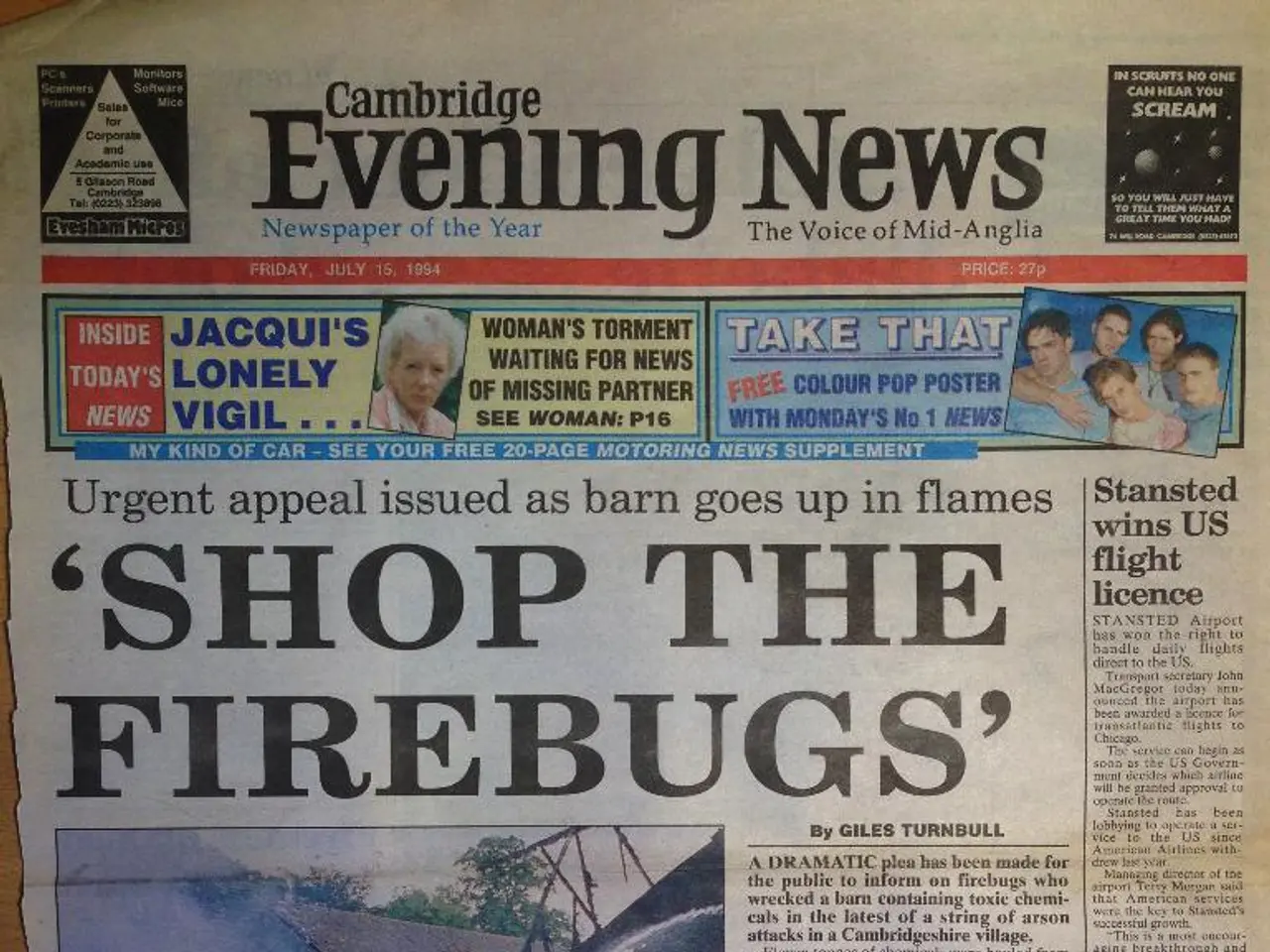Conservatives celebrate as Corporation for Public Broadcasting plans shutdown, elating Republican representatives
The Corporation for Public Broadcasting (CPB), the organisation that provides taxpayer money to NPR and PBS, has announced it is closing its doors. The decision comes after federal funding cuts initiated by President Donald Trump and the GOP-led Congress last month.
For decades, Republicans have campaigned on ending federal funding for public media, a practice that had been allocated from the CPB to NPR and PBS. The 2025 funding cuts to these services resulted in the rescission of about $1 billion previously allocated to public broadcasting, marking the first time in decades that Congress approved a president’s request to rescind already approved funding for these services.
House Speaker Mike Johnson exclaimed, "The days of the American people being forced to fund biased political outlets ARE OVER." Sen. Joni Ernst reacted with emojis, "Bye bye bye, I exposed that the Corporation for Public Broadcasting failed to vet editorial standards at NPR, PBS, and other 'news' outlets before handing over millions of tax dollars for blatantly biased partisan propaganda."
In recent years, NPR and PBS have been under scrutiny from Trump and GOP lawmakers over allegations of political bias, which their leadership has vehemently denied. However, this did not deter the decision to cut funding. Sen. Mike Lee wrote, "NPR and PBS are free to continue their biased programming. But not with your tax dollars. That's done."
The CPB's closure will undoubtedly have an impact on the operations of NPR and PBS. Many public broadcasting stations, including dozens in California, have announced plans to reduce staff and cut programming due to the loss of millions of dollars in federal funding. This reduction in funding has forced NPR and PBS affiliates to curtail operations significantly, affecting content delivery and possibly limiting access, especially in rural and tribal areas where these stations provide critical information like emergency alerts.
In a statement, CPB President and CEO Patricia Harrison expressed gratitude for partnerships with local stations and producers that supported educational content, locally relevant journalism, emergency communications, cultural programming, and essential services for Americans in every community. She also stated that most of the CPB employees’ positions will conclude at the close of the fiscal year at the end of September.
The Trump administration's proposal to eliminate $1.1 billion allocated to the CPB through fiscal year 2027 has intensified concerns about the sustainability of public media services. Sen. John Kennedy touted, "The Corporation for Public Broadcasting-the scheme bureaucrats used to funnel taxpayer money to NPR and PBS-will soon be no more."
Philip Klein, National Review editor, said, "Amazing Friday news - Corporation for Public Broadcasting is shutting down. Credit to Trump for finally being willing to do what other Republicans were too afraid to do." Charlie Kirk, Turning Point USA founder, also commented, "The Corporation for Public Broadcasting, which funds NPR and PBS, has announced it will be shutting down."
As the CPB begins an "orderly wind-down of its operations," NPR CEO Katherine Maher and PBS CEO Paula Kerger will have to navigate the challenges of operating without federal funding. They have defended their media organisations while testifying on Capitol Hill in March, facing tough questions from Republicans over past allegations of bias and promoting far-left ideologies.
In response to these cuts, the future of public broadcasting in America remains uncertain. The organisations will have to adapt to survive, but the long-term implications of diminished federal support for public broadcasting are yet to be seen.
- The closure of the Corporation for Public Broadcasting (CPB) marks the end of federal funding for NPR and PBS, a move driven by congressional Republicans who have long campaigned against the practice, citing concerns over political bias in public media.
- The federal funding cuts to public broadcasting services, including NPR and PBS, have led to significant reductions in staff and programming at many local stations, potentially limiting access to essential services like emergency alerts, especially in rural and tribal areas.






